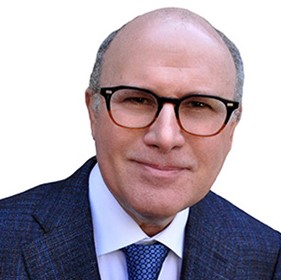
The third industrial revolution is happening right now. Silicon is the new steel, and data is the new oil. Now the companies that build Big Data ecosystems are about to reap the rewards.
That is the finding of an exhaustive new research report from Morgan Stanley. The 109-page tome traces industrial development through the ages — from the dirty days of coal to today’s pristine data centers.
While several sectors such as media, online retail and hospitality have already moved to the new era of data and digitization with great success, the analysts conclude the U.S. economy is still only 27% digital. They expect that metric will reach 43% in ten years, and significant rewards will flow to companies that bring the data revolution to little-trafficked sectors like pharmaceuticals.
For example, Tufts Center for the Study of Drug Development found the average cost of a new drug in 2013 was almost $1.4 billion. Of that, a material component was the result of high failure rates for drugs tested in human subjects. The appeal of Big Data is better human profiling and drug characterization to reduce attrition. Morgan Stanley analysts believe these cost savings could be $20 billion per year in the U.S. alone, or 5% of the $400 billion pharma market.
And that is just the start. BCC Research of Wellesley, Mass., expects the global market for healthcare analytics to triple to $16.9 billion by 2020.
Economic Tidal Waves Act Just like Tsunamis
According to the National Geographic, the enormous energy of a tsunami can lift giant boulders, flip vehicles and demolish houses. But from a financial standpoint, the K Wave will be even worse: Millions could lose their homes. Millions more could see their lifesavings wiped out in an instant. Businesses, large and small, could close their doors. Even the bare necessities of life — food, water, clothing — might become scarce. That’s why it’s so important that you get your free copy of "STOCK MARKET TSUNAMI" right away, click here to download now! — Larry Edelson
Alphabet (GOOGL) began the transition to a holding company two years ago to allow its disparate subsidiaries to shine on their own accord. Its DeepMind, Calico and Verily units are now focused on all parts of the healthcare value chain.
DeepMind, the artificially intelligent brain best known for defeating a world champion Go player, is working with U.K. hospitals to help physicians diagnose and treat illnesses better. Calico is a standalone, data-driven pharmaceutical company working on longevity. Verily is leveraging its computing and engineering chops to help big pharma firms do more effective research. Last week it formed a joint venture with French drug company Sanofi for diabetes research. This follows similar collaborations with British drug maker GlaxoSmithKline and Swiss pharma giant Novartis.

The big prices of small pills can be cut down to size by properly analyzing Big Data.
IBM (IBM) has taken a slightly different route. In 2013 it broke out its artificial intelligence Watson computing platform to tackle healthcare through data analytics. The result has been Watson Health.
Because the unrestricted health-data market is fragmented and still relatively young, given longstanding industry silos, IBM has been an aggressive consolidator. In 2015, it bought Merge Health for $1 billion to bolster its medical imaging capabilities. This year, it bought Truven Health Analytics for $2.6 billion.
Watson Health General Manager Deborah Disanzo told Bloomberg: "The strategy of IBM is to bring this data together and democratize it so that both IBM and our ecosystem of partners can build health solutions on top of it."
And that is the key. Big Data will change healthcare in fundamental ways. Alphabet and IBM are taking the lead, building vibrant ecosystems around their Big Data collection and analytic tools.
Splunk (SPLK) will be a major player, too. The company produces web-interface software that’s designed to search, monitor and analyze the Big Data generated by machines.
All three companies will benefit handsomely from the growing market.
TECH UPDATE
Tesla (TSLA) revealed upgrades to its radar system that will elevate it to the primary control sensor. Cars from the 2014 model year will get the upgrade free in an over-the-air software update… Amazon (AMZN) is stepping up its physical stores with several dozen experimental pop-up stores. Meanwhile, here is one take on why you should never sell the shares… BMW is set to accelerate its electric-vehicle plans with three additional models… An MIT scientist has a theory that could eliminate all viruses. He just needs money to fund testing. So he’s raising it on Indiegogo, naturally… Uber is working on self-driving cars in Pittsburgh, and lawmakers there are letting the startup do almost whatever it wants to get working prototypes… Microsoft (MSFT) is actively seeking autistic coders as it looks to broaden its workforce. The move is good for public relations and for the company’s more agile computing ambitions… In the past two weeks, two asteroids have come close to hitting the Earth. Well, they were 23,000 and 50,000 miles away, but that’s close enough, giving scientists just a couple days warning.
Maker Culture: Software might be eating the world but there is a vibrant "maker culture" on the outskirts of Shenzhen, China, the home to most of the hardware factories where smartphones and other gadgets are born. Read at Wired here.
Self-Driving Cars: Intel researchers at Darmstadt University in Germany are using the video game Grand Theft Auto to teach autonomous cars how to avoid hitting humans who are doing questionable things. Read at MIT Technology Review here.
Solar Power: Green energy projects are multiplying. Solar power projects shot ahead 43% in the second quarter led by new capacity for utilities companies. Read at Bloomberg here.
Best wishes,
Jon Markman



